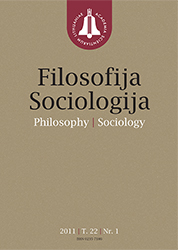Skills mismatch in the new and old member states – are generations affected differently?
Skills mismatch in the new and old member states – are generations affected differently?
Author(s): Agnieszka Chłoń-Domińczak, Iga Magda, Łukasz SienkiewiczSubject(s): Education, Labor relations, Applied Sociology, Economic development, EU-Approach / EU-Accession / EU-Development, Socio-Economic Research
Published by: Lietuvos mokslų akademijos leidykla
Keywords: skills mismatch; over skilling; under skilling; generations; labor market; new member states;
Summary/Abstract: In the paper we investigate differences in the skills mismatch in the new and old EU member states. We look at the influence of their different socio-economic characteristics, in particular age and educational attainment, on the level of skills mismatch and link these to the patterns of economic development, in particular the economic transition in Central and Eastern Europe. The results of our analysis show that workers in the NMS compared to the EU-15 have a higher risk of under skilling and a lower risk of over skilling in all age groups. The differences between the two sets of countries are larger for older workers and smaller for younger ones. This indicates that there may be a gradual convergence of the skills match patterns on the European labor market for younger generations and educational levels.
Journal: Filosofija. Sociologija
- Issue Year: 2016
- Issue No: 4
- Page Range: 331-341
- Page Count: 11
- Language: English

